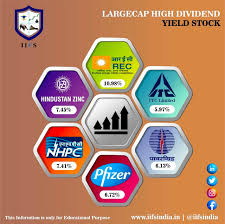
Equity derivatives could be a great way to invest in stock stocks. These investment products allow investors the opportunity to invest in the performance of an underlying investment but not the stock. These investment products may be more beneficial in the long term than the short term. However, the short-term benefits can often be far greater. These investment products can be especially beneficial for investors who invest in long-term projects. These equity derivatives may be something you should consider adding to your portfolio.
Other Options
Equity derivatives allow investors to purchase or sell underlying stocks. Equity options, unlike an outright stock purchase, require less capital than a short or long position on margin. If the option expires in cash, the investor can profit more from price movements and take advantage of greater leverage. A common example of an option is a put option, which gives an investor the right to sell the underlying stock.

Futures
When you trade in futures on equities, you're not actually investing in the company itself. Instead, you buy a contract that gives you exposure to a physical asset, such as oil or corn. You are also exposed to weather conditions, currency fluctuations, and weather changes. While you could actually hold a stock in your hand, futures traders use virtual accounts to avoid physical delivery. To offset losses, margin is necessary.
Warrants
Although the stock market is complex, it can be difficult to understand how to make money from investments. Stocks are most commonly used as an investment vehicle. However, stock warrants can be more difficult to find and are therefore less common. Stock warrants come with attractive returns. However, there are certain trade-offs and qualifications that must be considered before you purchase. Before adding warrants, investors should seek advice from an experienced financial professional.
Convertible bonds
Conversion is an option that can be added to a convertible debt. The current stock price for the underlying equity is used to determine the value of an option. Optionally, the issuer can call or force the bond to be converted. This type may also include terms like "call", or "put," or both. These terms represent the relationship between a converted bond and its equity. You should be aware that not all convertible bonds offer a call or force option.

Swaps
Swaps are an alternative to equity derivatives. They allow investors the opportunity to trade the equity security's return for other cash flows. A swap is a way for investors to get exposure to stocks without actually owning those securities. An equity swap offers another benefit: it allows an investor the opportunity to invest in more securities without taking on the risk or expense of owning stock.
FAQ
What is a REIT and what are its benefits?
A real-estate investment trust (REIT), a company that owns income-producing assets such as shopping centers, office buildings and hotels, industrial parks, and other buildings is called a REIT. These companies are publicly traded and pay dividends to shareholders, instead of paying corporate tax.
They are very similar to corporations, except they own property and not produce goods.
What is security at the stock market and what does it mean?
Security is an asset which generates income for its owners. Most security comes in the form of shares in companies.
One company might issue different types, such as bonds, preferred shares, and common stocks.
The earnings per share (EPS), and the dividends paid by the company determine the value of a share.
A share is a piece of the business that you own and you have a claim to future profits. If the company pays a payout, you get money from them.
You can sell shares at any moment.
Why is a stock called security.
Security is an investment instrument, whose value is dependent upon another company. It may be issued either by a corporation (e.g. stocks), government (e.g. bond), or any other entity (e.g. preferred stock). The issuer promises to pay dividends to shareholders, repay debt obligations to creditors, or return capital to investors if the underlying asset declines in value.
Statistics
- The S&P 500 has grown about 10.5% per year since its establishment in the 1920s. (investopedia.com)
- Even if you find talent for trading stocks, allocating more than 10% of your portfolio to an individual stock can expose your savings to too much volatility. (nerdwallet.com)
- Ratchet down that 10% if you don't yet have a healthy emergency fund and 10% to 15% of your income funneled into a retirement savings account. (nerdwallet.com)
- "If all of your money's in one stock, you could potentially lose 50% of it overnight," Moore says. (nerdwallet.com)
External Links
How To
How do I invest in bonds
An investment fund is called a bond. They pay you back at regular intervals, despite the low interest rates. You make money over time by this method.
There are many ways to invest in bonds.
-
Directly purchase individual bonds
-
Buy shares in a bond fund
-
Investing through a broker or bank
-
Investing via a financial institution
-
Investing through a pension plan.
-
Invest directly through a stockbroker.
-
Investing via a mutual fund
-
Investing in unit trusts
-
Investing through a life insurance policy.
-
Private equity funds are a great way to invest.
-
Investing using an index-linked funds
-
Investing via a hedge fund